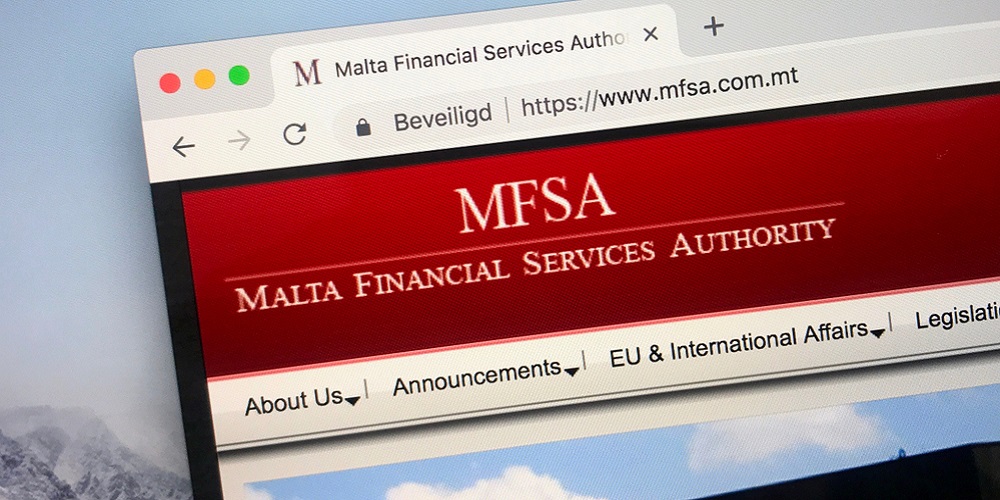
There’s a group of countries on the Old Continent that have recognized the potential of the newly forming cryptoconomy. In the past couple of years, nations such as Malta, Switzerland and Estonia have been making efforts to attract businesses from the nascent industry, often rebuffed elsewhere. However, registering and running a crypto company, even in the most favorable climates, comes with certain challenges as businesses across the continent have been finding out.
Also read: Online Bank Mistertango Offers Crypto Companies Multiple Accounts and Ibans
Four Months Later, Malta Approves First Crypto Asset Agents
Financial authorities in Malta, a nation which takes pride in calling itself the Blockchain Island, recently approved 14 entities that will become the first Virtual Financial Asset (VFA) agents in the country. They will serve as intermediaries between crypto companies and the Malta Financial Services Authority (MFSA) which issued the approvals.

The agents are expected to provide guidance and assistance with legal and accounting matters to businesses and entrepreneurs on behalf of the regulator. These include token issuers and service providers operating under the country’s Virtual Financial Assets Act which came into force in November. The certified agents will be responsible for evaluating business plans and conducting due diligence under the anti-money laundering regulations.
The approvals have been granted “in principle,” which means the details need to be clarified, as the local press reported. That happened more than four months after the filing of the first 28 applications and almost a year and a half since Malta began working on its crypto regulatory framework.
Despite this important milestone in government efforts to create the necessary conditions for the industry, crypto companies continue to experience difficulties in their business activities on the island. Banks, for example, have been refusing to provide them basic financial services such as the opening of an account.
Strict Regulations Slow Maltese Registration
To find out more about the obstacles facing crypto businesses and authorities in Malta and other countries, news.Bitcoin.com contacted SBSB Legal Services. The law firm, which has offices in Moscow, Kiev, Tallinn, and Prague, has expertise in the field and experience with fintech and crypto regulations across multiple European jurisdictions.
According to Julia Demskaya, legal expert at SBSB, the approval process for the first VFA agents in Malta has taken a lot of time because of the absence of prior regulatory practice. These agents will be obliged to ensure the full compliance of their clients with the law. “It’s likely that the regulator’s requirements are too strict and not every applicant has been able to prove that their verification procedures would prevent money laundering or the funding of illegal activities,” she said.

Demskaya further commented that the specifics of registering a company in Malta depend on the nature of its business. What’s common in all cases is the requirement to open an office in the country, which can be fulfilled with the help of a VFA agent. Entities must also hire personnel with expertise in their particular field. Firms working with smart contracts, for instance, will have to employ a system auditor. And if the company is unable to do that, the regulator will assign a qualified professional.
Asked which of the major crypto-friendly countries in Europe, such as Malta, Gibraltar, Switzerland, and Estonia, offers the best conditions for businesses from the industry, Demskaya said that the answer depends on the business activity. Estonia offers the best conditions for crypto trading platforms. The low initial capital needs, the fast licensing process and the favorable taxation have turned the tiny Baltic nation into a leader among similar jurisdictions.
However, towards the end of last year, news came out that authorities in Tallinn are preparing to tighten the licensing regime for crypto companies. According to SBSB’s representative, it’s still hard to guess what the stricter regulations would look like, but the new Estonian requirements are likely to be similar to those adopted in Malta and may include additional licensing for certain activities.
Switzerland: Expensive Destination for High Level Projects
“When we talk about reputation and if we want to present a high level project, of course the choice falls on Switzerland or Liechtenstein,” Julia Demskaya noted. “However, launching in these countries requires a considerable budget, starting from 500,000 euros. On the other hand, working with banks as well as with customers there would be much easier compared to Estonia.”

Talking about other jurisdictions in Europe, Demskaya commented on the situation in Ukraine and the Russian Federation, where a number of “gray and black” crypto platforms are currently operating. She believes it’s very hard to oversee and prevent their activities when there’s no legislation in place prohibiting or regulating cryptocurrency-related business.
“Introducing dedicated legislation would be the optimal solution, which would allow this type of businesses to be brought to light and possibly granted preferential tax treatment, which would make Ukraine an attractive country for investments. However, given the level of economic development and corruption in our country, even such conditions are unlikely to attract foreign capital,” the legal expert concluded.
What do you think about crypto regulations in Europe? Share your thoughts on the subject in the comments section below.
Images courtesy of Shutterstock.
Do you need to reach out to a global audience interested in Bitcoin? Post your press release here. If approved and paid we’ll include it in our main sidebar, in our subscription newsletters and in our other distribution channels, such as Telegram.
The post Regulators Tackle Businesses in Europe’s Crypto-Friendly Nations appeared first on Bitcoin News.

Bitcoin.com is author of this content, TheBitcoinNews.com is is not responsible for the content of external sites.
Our Social Networks: Facebook Instagram Pinterest Reddit Telegram Twitter Youtube










